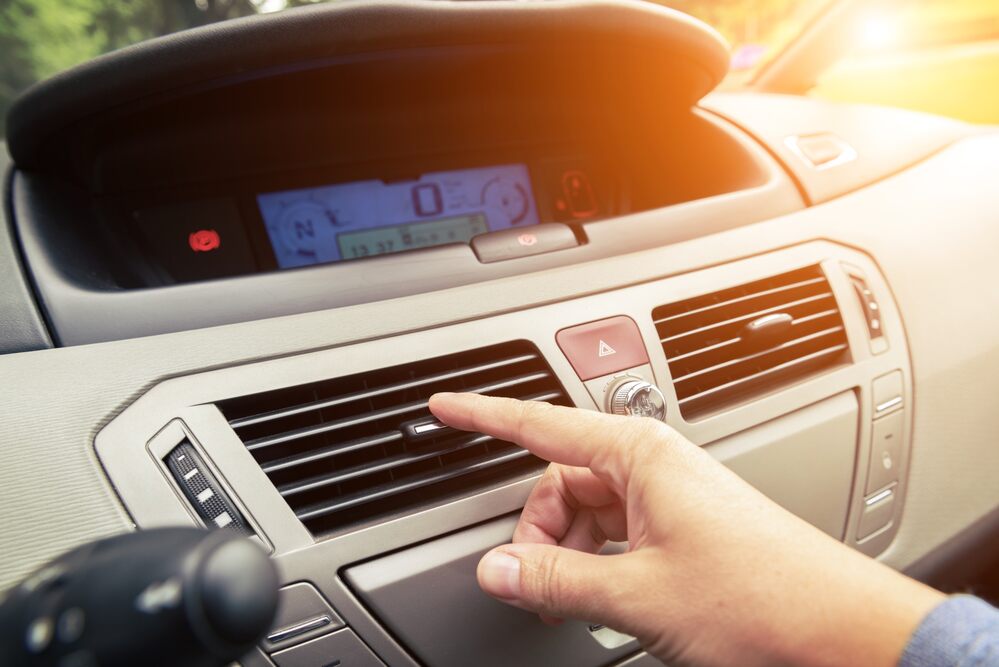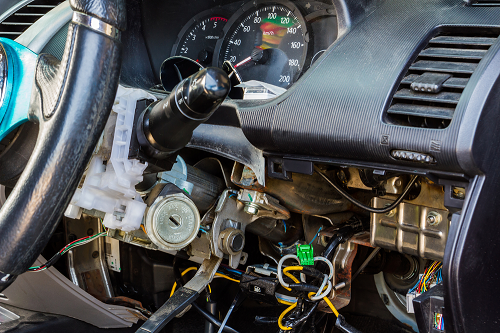One of our biggest investments, our vehicles require looking after on a regular basis. But no matter how vigilant you are about regular car maintenance, car problems will eventually pop up. Parts wear out, hoses leak, and things get dinged or damaged.
Spending money on maintenance today will help you spend less on repairs tomorrow. Regular oil changes, filter replacements, and fluid top-ups can really make a difference. Here are the top 10 common car problems you’re likely to face as time goes by and mileage adds up.
First Five Common Car Problems
- Electrical. Power windows, interior lights, the radio and clock, turn signals, windshield wipers and more are powered by your car’s electrical system. If your car is experiencing any electrical problems, voltage drop testing is the best way to find a fault.
- Transmission. Many people first notice a transmission problem when they try to shift from park to drive. Fixing the transmission can be an expensive job, so have the fluid level regularly checked, and make sure it’s free from grime or metal flakes.
- Leaks. Loss of vital fluids can result in an overheated engine and non-working air conditioner. If you notice any leaks beneath the car, have your mechanic take a look.
- Belts and Hoses. Defective belts and hoses usually make their presence known by making a squealing or clanking sound while the engine is running. A quick trip to the shop to replace damaged hoses and belts should do the trick.
- Alignment. Your car’s alignment can be off for several reasons, including hitting a curb or pothole. Improper wheel alignment affects how your car handles and has a negative impact on gas mileage and tire tread.
Additional Car Problems to Look Out For
- Brakes. Over time, degradation causes brakes to become less responsive. If your car’s brakes are in bad shape, they tend to make a high-pitched squeal or a grinding sound. Fix this immediately and avoid high costs later on.

- Head Gasket Leaks. Coolant leaks are often caused by blown head gaskets. You may also notice white smoke coming from the exhaust pipe, an overheating engine, or a foamy residue inside the oil filler cap. While all those symptoms could indicate a less serious problem, have your trusted mechanic take a look. A blown head gasket can lead to other serious damage, including total engine failure.
- Heating and A/C. Air conditioner leaks are one of the most common car problems. Lack of cooling is usually caused by an evaporator core failure or contaminated refrigerant. Three things cause most heating problems: a lack of proper engine temperature, coolant and/or air flow through the heater core. Both problems require immediate attention before they cause more serious damage.
- Frame Damage. The frame is the foundation of your car and protects you by absorbing most of the impact in a collision. Many car owners don’t realize they have frame damage and put problems down to the suspension or alignment.
- Body Damage & Rust. It’s one of the easiest problems to spot. Don’t ignore even small rust spots, as they can quickly and easily spread. Other car parts that can rust include the wheel wells and engine.
What can you do? Stay on top of those regular maintenance items and take care of car problems when they first appear. Contact All Around Auto Repair today to avoid letting a simple spark plug replacement turn into a major repair.
Frequently Asked Questions
Why do cars encounter electrical problems?
Cars often face electrical issues due to the complexity of their electrical systems. Power windows, lights, and other components rely on this system. If your car experiences electrical problems like malfunctioning lights or power windows, it’s crucial to have a voltage drop test to pinpoint the fault accurately.
How can I prevent transmission problems in my car?
Regular transmission maintenance is key to preventing costly repairs. Ensure the transmission fluid level is regularly checked and free from contaminants. Transmission problems, often noticeable when shifting gears, can be mitigated through proper fluid maintenance and regular inspections.
What should I do if I notice leaks under my car?
Leaks beneath your car could indicate a loss of vital fluids, leading to engine overheating or malfunctioning air conditioning. It’s essential to address leaks promptly by consulting a mechanic to prevent further damage and maintain optimal vehicle performance.
How do defective belts and hoses impact my car’s performance?
Defective belts and hoses can cause squealing or clanking sounds while the engine is running. These components are crucial for proper engine function. Prompt replacement of damaged belts and hoses ensures optimal engine performance and prevents potential breakdowns.
Why is proper wheel alignment important for my car?
Improper wheel alignment, often caused by road hazards or collisions, affects vehicle handling and tire wear. It can lead to decreased gas mileage and uneven tire tread. Regular alignment checks and adjustments are essential to maintain vehicle safety and performance.
How can I identify brake problems in my car?
Brake degradation over time results in less responsive braking and noticeable noises like squealing or grinding. Promptly addressing brake issues prevents further damage and ensures optimal braking performance, reducing the risk of accidents and costly repairs.
What are the signs of head gasket leaks in a car?
Head gasket leaks often manifest as coolant leaks, accompanied by symptoms like white smoke from the exhaust, engine overheating, or foamy residue in the oil filler cap. These signs indicate potential head gasket failure, necessitating immediate attention to prevent further engine damage.

Refrigerant Recharge or Vehicle AC Service and Repair All Around Auto Repair CA
How do air conditioning and heating issues affect driving comfort?
Air conditioner leaks and heating problems can compromise driving comfort, especially during extreme weather conditions. Lack of cooling or heating is often caused by component failures or coolant issues. Addressing these problems promptly ensures a comfortable driving experience.
What are the implications of frame damage in a car?
Frame damage compromises vehicle safety by weakening its structural integrity. It often goes unnoticed, leading to misdiagnosis or overlooked issues. Timely detection and repair of frame damage are essential to ensure vehicle safety and prevent further complications.
Why should car owners address body damage and rust promptly?
Body damage and rust can spread quickly if left untreated, compromising the vehicle’s structural integrity and aesthetics. Even minor rust spots can lead to extensive corrosion, affecting critical components like the frame and engine. Prompt repair and maintenance prevent costly damage and ensure long-term vehicle durability.


